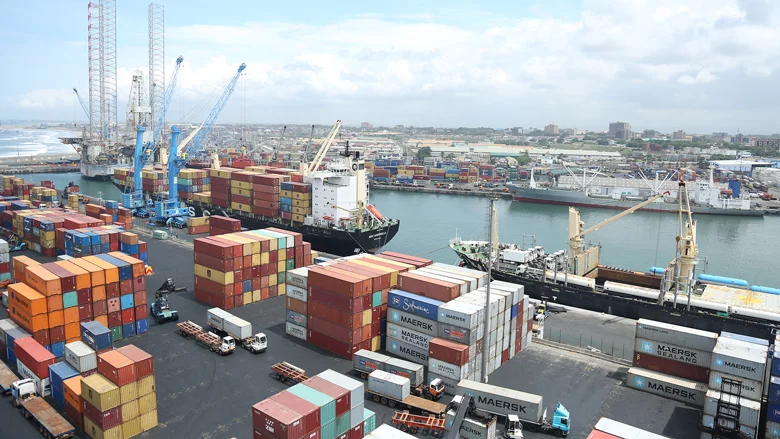AfCFTA Records Progress with 23 Countries Gazetting Tariffs and Opening Borders for Trade
Senior Advisor to the Secretary-General of the African Continental Free Trade Area (AfCFTA) Secretariat, Cynthia Gnassingbe-Essonam, has disclosed that 23 African countries have now fully gazetted their tariffs and opened their borders for trade under the AfCFTA framework.
Speaking during a webinar organised by LIMA Partners on the theme, “Unlocking Opportunities Across Africa: Harnessing AfCFTA for Business Growth”, Ms. Gnassingbe-Essonam stated, “We have close to 30 countries that have now joined the Guided Trade Initiative. Out of them, 23 countries have gazetted their tariffs and have opened up their borders for trade under the AfCFTA.”
Providing an update on the status of ratifications and signatories, she noted that as of March 25, 2025, 49 countries had ratified the AfCFTA Agreement, out of 54 signatories. Eritrea remains the only African country yet to sign the Agreement, while countries such as Benin, Somalia, Libya, Sudan, and South Sudan have not yet ratified it.
Highlighting progress made in market integration, Ms. Gnassingbe-Essonam explained that countries including Algeria, Tunisia, Egypt, South Africa, Nigeria, Ghana, South Sudan, and Uganda have submitted their tariff offers, which have been approved and domesticated into national systems. “Their customs officers now have the new tariffs in their systems, allowing them to import and export goods under AfCFTA preferential terms,” she said.
Touching on trade in services, she acknowledged that progress has been slower compared to trade in goods. She indicated that negotiations are ongoing in five priority sectors — financial services, transport, communication, tourism, and business services — with the goal of finalising regulatory frameworks by the end of 2025.
To support operationalisation, Ms. Gnassingbe-Essonam highlighted the launch of several digital tools, including the e-Tariff Book and the Rules of Origin Manual, both accessible via the AfCFTA Secretariat’s website. “Any business today, any trader, importer, exporter, or freight forwarder can consult the e-Tariff Book to determine the applicable tariff rates for goods being traded under AfCFTA,” she said.
On Rules of Origin, she reported that 92% of tariffs have agreed rules of origin, facilitating cross-border trade among member states. However, sectors such as textiles and automotive products are still undergoing final negotiations.
The Senior Advisor also mentioned the establishment of a Non-Tariff Barriers (NTB) Reporting Portal, which allows businesses to report barriers encountered during trade, with mechanisms in place to address and resolve such issues.
On financial integration, she lauded the Pan-African Payment and Settlement System (PAPSS) as a transformative platform enabling real-time cross-border transactions using local currencies. PAPSS has so far connected over 20 central banks and 160 commercial banks across the continent.
Additionally, she spoke about the AfCFTA Adjustment Fund, operational in Kigali, which was set up in collaboration with Afreximbank to cushion countries experiencing revenue losses due to tariff liberalisation and to support broader economic transformation.
“We are working diligently to build a fully integrated African market, and these instruments are critical to facilitating and unlocking opportunities for businesses across the continent,” Ms. Gnassingbe-Essonam concluded.
According to a new report by the United Nations Economic Commission for Africa (UNECA), the African Continental Free Trade Area (AfCFTA) is entering a new phase of implementation, marked by broader participation and deeper institutional integration.
In the report titled “Advancing the Implementation of the African Continental Free Trade Area: Proposing Transformative Strategic Actions,” UNECA highlights the steady progress of the AfCFTA’s operationalisation, driven by the Guided Trade Initiative (GTI)—a pilot framework introduced in 2022 to facilitate the first wave of intra-African trade under the AfCFTA protocol.
Initially launched with seven pilot countries—Ghana, Kenya, Egypt, Cameroon, Mauritius, Rwanda, and Tanzania—alongside Tunisia, the GTI enabled trade in a narrow basket of goods such as ceramic tiles, batteries, tea, coffee, corn starch, and sisal fibre. The latest phase, now underway, has expanded to include over 30 countries, notably Nigeria and South Africa, Africa’s two largest economies. The move significantly bolsters the political and economic weight behind the AfCFTA’s practical rollout.
UNECA describes the GTI as a “creative and innovative” mechanism to operationalise the free trade agreement and to test the institutional and procedural readiness of member states.



